Assistant Professor
University of Belgrade, Faculty of Organizational Sciences, Department for Mathematics

Dušan Džamić is a PhD student at the Department for Informatics and Computer Science, Faculty of Mathematics, University of Belgrade. At the same Faculty, he graduated as a Bachelor of Mathematics and Computer Science in 2013. He defended his master thesis in 2014. He is working as a teaching assistant in the Department for Mathematics at the Faculty of Organizational Sciences, University of Belgrade, and also as a part-time researcher at theMathematical Institute SANU in Belgrade. His research is mainly focused on Mathematical Programming Methods and Optimization.
University of Belgrade, Faculty of Organizational Sciences, Department for Mathematics
University of Belgrade, Faculty of Organizational Sciences, Department for Mathematics
University of Belgrade, Faculty of Organizational Sciences, Department for Mathematics
University of Belgrade, Faculty of Mathematics, Department for Mathematical Analysis
Faculty of Mathematics, University of Belgrade
Module Computer Science and Informatics Faculty of Mathematics, University of BelgradeMaster's Thesis: "Hybrid metaheuristics for solving the hybrid flow shop scheduling problem"
Module Computer Science and Informatics Faculty of Mathematics, University of Belgrade
High school "Saint Tryphon", Aleksandrovac
Board member
Mathematics 1, Mathematics 2, Mathematics 3
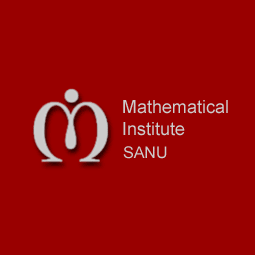
The main goal of our research is consideration of real-word large scale systems that needs to be improved using mathematics and optimization methods. Such large scale systems appear in industry, telecommunication, transportation, medicine, electronics, education, chemistry, in public and private sector, etc.Most of real word problems belong to the areas of combinatorial and global optimization. More precisely, they may include integer, Boolean 0-1, and/or continues variables. In addition, such problems might be linear or non-linear. Thus, the model may belong to mixed integer linear or nonlinear programming. However, most of them are NP-hard and this means that there is no exact solution method that could solve the problem in reasonable time. Since there are usually a huge number of unknown variables and constraints, in the forefront will be the development of heuristics based on some metaheuristics principle. They do not ensure finding an optimal solution, but approximate one, in reasonable computing time. Our attention will be mostly focused on Variable neighborhood search (VNS) and Genetic algorithms (GA) metaheuristic. In addition to designing heuristics based on VNS and GA for many classical combinatorial and global optimization problems, we will develop their methodological and theoretical properties.
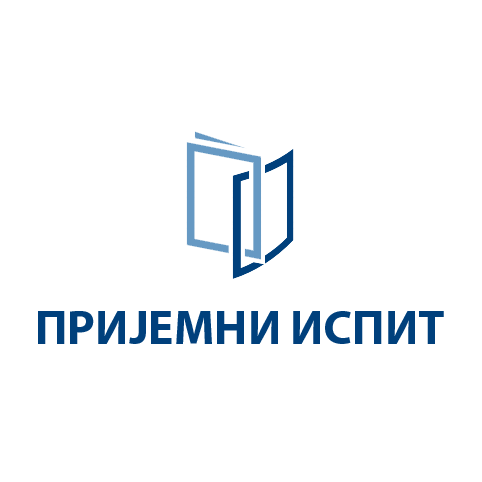
Prijemni ispit je obrazovna platforma namenjena učenicima srednjih škole kao pomoćno sredstvo za pripremanje prijemnog ispita.Cilj programa je pružanje pomoći invalidnim učenicima za uspešno samostalno savladavanje i uvežbavanje gradiva i pripremanje prijemnog ispita iz matematike i srpskog jezika pomoću modernih tehnoloških sredstava. Posebno prilagođeni zadaci pružaju mogućnost učenicima obuhvaćenim inkluzijom da koriste IKT i unaprede svoje znanje. Platforma bi trebalo da utiče na to da učenici savladaju prepreke koje ih sprečavaju da ostvare samostalnost i kontinuitet u radu.
Adresa: prijemniispit.math.rs
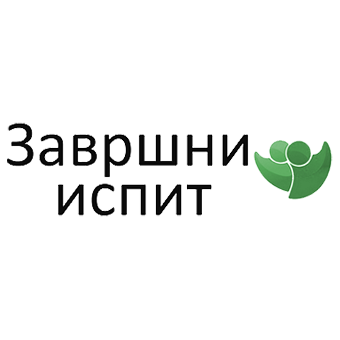
Platforma „Završni ispit“ je obrazovna platforma namenjena učenicima osnovne škole kao pomoćno sredstvo za pripremanje završnog ispita. Platforma je namenjena za uvežbavanje gradiva iz srpskog jezika i matematike i prilagođena je učenicima u procesu inkluzije. Platforma sadrži zadatke iz matematike i srpskog jezika namenjene učenicima koji se spremaju za polaganje završnog ispita. Zadaci su grupisani po oblastima i nivoima i smešteni su u bazu podataka. Korišćenjem ove platforme, učenici imaju mogućnost da provere i unaprede svoje znanje radeći različite probne testove završnog ispita, kao i da vežbaju zadatke iz tačno određene oblasti i sa tačno određenog nivoa. Posebno prilagođeni zadaci pružaju mogućnost učenicima obuhvaćenim inkluzijom da koriste IKT u cilju provere i unapređivanja sopstvenog znanja. Platforma bi trebalo da utiče na to da učenici savladaju prepreke koje ih sprečavaju da ostvare samostalnost i kontinuitet u radu. Dizajn platforme je takav da na najpogodniji način odgovara potrebama učenika i nastavnika. Omogućene funkcionalnosti pospešuju motivaciju i zainteresovanost učenika za samostalni rad, pomažu bolje dostizanje ciljeva časa i podižu kvalitet nastave.
Adresa: zavrsniispit.math.rs
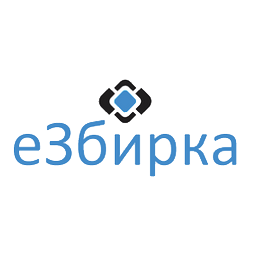
Platforma eZbirka predstavlja elektronsku zbirku zadataka iz matematike za više razrede osnovne škole. Svi zadaci koji se nalaze na platformi grupisani su po razredima i nastavnim jedinicama, što olakšava njihovu pretragu i korišćenje. Platforma je kreirana tako da pruža mogućnost da nastavnici na jednostavan način mogu i sami da kreiraju pitanja i zadatke, pa je osim nastavnika matematike, mogu koristiti i nastavnici na drugim predmetima. Otvaranjem korisničkog naloga, nastavnici mogu pratiti rad i napredak učenika. Na ovaj način se upoznaju sa problemima učenika nakon svake nastavne jedinice, što omogućava bolje planiranje nastavnih aktivnosti. Platforma se može upotrebiti kao pomoćno sredstvo za izvođenje nastave u digitalnim kabinetima, organizovanje testova i zadavanje domaćih zadataka. Kvalitet zadataka, moderan dizajn i jednostavnost korišćenja platforme eZbirka bi trebalo da utiču na to da se što veći broj nastavnika zainteresuje za korišćenje savremenih tehnoloških sredstava pri planiranju i održavanju nastave.
Adresa: ezbirka.math.rs
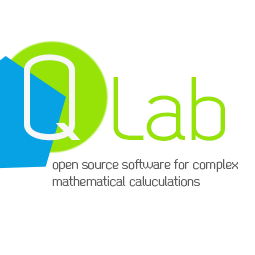
The main idea behind the Qlab project is to develop open source software which will support complex mathematical calculations. It is being developed by Faculty of Mathematics, University of Belgrade and it's supported by Microsoft Academic Community Serbia. The project is written on .NET platform. It is published under MS-RpL. Developers are students under the leadership of faculty professors. They are divided into teams and in order to usethe full potential of the faculty, students from all sections and modules are included in the development. Initial set of Qlab functionalitites is based on those of MATLAB, but one of the main goals is to expand that set and to develop more comprehensive mathematical software which will be released under Open source licence. In addition, Qlab adheres all MATLAB standards, so every program written in MATLAB will have no problems executing in Qlab, and vice versa.
Zbirka je napisana prema važećem programu predmeta Matematika 2 na Fakultetu organizacionih nauka u Beogradu. Ona sadrži rešenja 196 zadataka sa ispita i kolokvijuma iz Matematike 3, u periodu od 2013. do 2015. godine. Zbirka takođe sadrži teorijske napomene čije je poznavanje neophodno za rešavanje datih zadataka. Zadaci pokrivaju oblasti vezane za funkcije više promenljivih, neodređene, određene i dvojne integrale.
In this paper we consider a new variable neighborhood search (VNS) heuristic for the covering design problem. The local search is based on the systematic removing and adding elements to the blocks. The shaking is based on removing and adding blocks to the covering (destroying and reconstruction phases). We use a well-known greedy lexicographic heuristic for adding blocks in the covering. The proposed VNS approach can be applied to any covering design. We use several types of greedy coverings as well as the best known coverings from La Jolla covering design repository as the initial solutions. Using the proposed heuristic, we have obtained several new best known upper bounds on the covering number.
Many systems in real world exist in the form of networks, such as biological networks, social networks, the World Wide Web, transportation networks etc., which are also called complex networks. Many complex networks display community structure which identifies groups of nodes within which connections are denser than between them. The problem of identifying communities in networks can be turned into an optimization problem, by involving a quality function. This has big advantages, potentially, because one can exploit a wide variety of techniques and methods developed for other optimization problems. In this paper we give an approach to express the quality of the partitions of network into communities. This criterion involves the concept of ideal partition of a network, and is based on the fact that a quality function must attain its highest possible value in correspondence of this partition. We illustrate this method in combination with variable neighborhood search with applications to several published network data sets.
Obrazovanje učenika sa razvojnim smetnjama uslovljeno je mogućnostima učenika i zahteva posebno planiranje i realizaciju. Pored prepreka u vidu ograničenih sposobnosti učenika, postoji i problem slabe motivacije za rad. Jedan od načina za motivisanje učenika je upotreba informaciono-komunikacionih tehnologija (IKT) u nastavi, koje mogu pomoći da se nastavni sadržaji uspešno savladaju, a učenicima mogu pružiti dodatni intelektualni podsticaj. Kao primer informaciono-komunikacionih tehnologija u ovom radu biće prikazane obrazovne platforme Završni ispit i Prijemni ispit. Platforme nisu namenjene isključivo deci sa razvojnim smetnjama, ali su glavni korisnici platformi upravo ovi učenici, osnovnoškolskog i srednjoškolskog uzrasta. Kreirane su sa ciljem pružanja pomoći učenicima u savladavanju gradiva srpskog jezika i matematike pomoću modernih tehnoloških sredstava, kao i razvijanja svesti o prednostima koje donose savremene informacione tehnologije. Takođe, platforme doprinose premošćavanju obrazovnih prepreka i ograničenja sa kojima se učenici svakodnevno suočavaju. Upotrebom ovih i sličnih IKT-a u vaspitno-obrazovnom procesu ostvaruje se još jedan, dugoročniji i važniji cilj, a to je uspešno uključivanje dece sa razvojnim smetnjama u školski sistem, a zatim i u poslovni i društveni život koji ih očekuje u budućnosti.
Inclusive education is very specific in comparison to regular classes. Conditioned by the pupils' abilities, it requires special planning and implementation. In addition to the obstacles in the form of limited abilities of pupils, there is a problem of poor pupils' motivation to work. One way to motivate these pupils is the use of ICT resources and tools. Although there are many different visions for education in the future, great efforts will be needed to reach a profound integration between the technologies that are already well-established and those that are considered as emerging. This paper use example of final exam and gives a reason for making of educational software in order to make better educational environment and opportunities both for pupils and teachers. Given the fact that the focus of the teaching process has been shifting away from the curriculum and the teacher, and towards the student, multimedia and interactive computer technology will undoubtedly contribute in a significant way to the modernization of traditional teaching. Within the paper will be discussed learning with educational platform Završni ispit, which main objective are making same opportunity for all pupils in preparing for the final exam at the end of eight years of primary education. Learning with platform is adapted to pupils needs, so that pupils with developmental disabilities can focus on solving a problem in task, not only on the mechanical interpretation skills. Pupils are able to achieve interaction with peers using a common platform as an aid to learning.
The analysis of complex networks is playing an important role in computer science, biology and social sciences, among other fields. Many real life networks like communication networks, biological and social networks display community structure which identifies groups of nodes within which connections are denser than between them. Community detection is an interdisciplinary subject with a vast spectrum of applications that has attracted the interest of many researchers in various fields in the past few years. The most used criterion for that purpose, despite some recent criticism, is modularity maximization, proposed by Newman and Girvan. In this paper we present a Variable Neighborhood Decomposition Search (VNDST) for solving the modularity maximization problem, with addition mechanism to overcome the local maximum. The performance of our VNDST algorithm we evaluate on the well-known set of instances of clustering problems from the 10th DIMACS Implementation Challenge. Experimental results show that the proposed VNDST algorithm outperforms other algorithms from the literature.
Flow-shop scheduling problems represents a class of scheduling problems with a focus on processing a given set of jobs, where all jobs have to be processed in an identical order on a given number of machines. Hybrid flow-shop (HFS) problems overcome one of the limitations of the classical flow-shop model by allowing parallel processors at each stage of task processing. HFS problems are common manufacturing environments in many industries, such as the glass, building materials, steel, paper and textile industries. In this paper, we propose parallel variable neighborhood search algorithm (PVNS) for solving the HFS scheduling problem with minimum makespan objective. Initial solution is obtained by reduced version of the variable neighborhood search, called reduced variable neighborhood search algorithm (RVNS). Analysis of the most CPU consuming computational parts of the algorithm are done and obtained parts are parallelized. The proposed algorithm is tested on the well-known benchmark problems for HFS problem. Experimental results show that the proposed algorithm is a viable and effective approach for the hybrid flow shop scheduling problem.
Quadratic Assignment Problem (QAP) is a well-known NP-hard combinatorial optimization problem with a diverse set of applications. In this paper, we present a population-based heuristic algorithm for QAP. The main contribution of this paper is to develop a new approach memetic algorithm (MA) for QAP which combines an effective local search algorithm, a crossover operator and an adaptive mutation mechanism. The proposed MA algorithm is tested on the instances from QAPLIB. Experimental results show that the proposed MA algorithm performs very well on these instances.
In this paper we propose a new Variable neighborhood search (VNS) heuristic in order to find efficiently an upper bound of the so called metric dimension $\beta(Q_n)$ of hypercube graph $Q_n$, i.e. the minimal cardinality of a resolving set in $Q_n$. We use some symmetry properties of the hypercube and its resolving sets to reduce both the search space and the complexity of the resolving condition checking. In this way, we have simplified the neighborhood structures and reduced the computational complexity of the local search and shaking procedure. Compared to the existing heuristics, the VNS heuristic is more efficient and generates better upper bounds of $\beta(Q_n)$ for larger $n$.
This workbook was designed to support practical lectures realized within the subject “Mathematics 3” at the undergraduate studies of the Faculty of Organisational Sciences, University of Belgrade. The aim of the book is to enable students to prepare for practical part of the subject’s final exam. The book has 131 pages and contains 130 detailed solved examples and 88 problems left for a students’ independent work. It also contains theoretical introduction necessary for solving problems. This workbook is organized in two main chapters: colloquiums and final exams examples and covers the following areas: Differential Equations, Functions of a Complex Variable and Laplace Transform.
Hybrid flow shops (HFS) are common manufacturing environments in many industries, such as the glass, steel, paper and textile industries. In this paper, we propose two metaheuristic methods for solving the HFS scheduling problem with minimum makespan objective: a particle swarm optimization method and a tabu search algorithm. The proposed algorithms are tested on the well-known benchmark problems for HFS problem. Experimental results show that the proposed metaheuristics reach optimal solutions in significantly shorter CPU times compared to exact solver. In addition, the proposed algorithms provide solutions on HFS problem instances that could not be solved to optimality in real time by exact solver.
Problem raspoređivanja poslova u višefaznoj proizvodnji sa paralelnim mašinama (Hybrid flow shops (HFS) scheduling problem) često se javlja u automatizovanim industrijskim postrojenjima, kao što su postrojenja za proizvodnju stakla, građevinskih materijala, čelika, papira i tekstila. U ovom radu su predstavljeni metaheuristički algoritmi optimizacije rojevima čestica (PSO), simuliranog kaljenja (SA), tabu pretraživanja (TS) i metoda promenljivih okolina (VNS) za rešavanje HFS problema u cilju minimizacije vremena potrebnog za realizaciju procesa proizvodnje. Pored toga, u pokušaju da se iskoriste dobre osobine svake metaheuristike, predložena su dva hibridna metaheuristička algoritma PSO-TS i PSO-VNS-SA. Svi predloženi algoritmi su testirani na skupu instanci iz literature za HFS problem. Eksperimentalni rezultati pokazuju da hibridni metaheuristički algoritam PSO-VNS-SA dostiže kvalitetna rešenja kao i drugi predloženi algoritmi u literaturi.
Board member
Mathematics 1, Mathematics 2, Mathematics 3
Mathematics 1c
Mathematical analysis 1a
Consultation: Wednesday 10:00 - 12:00
Faculty of Organizational Sciences,
Jove Ilića 154,
11000 Belgrade, Serbia.